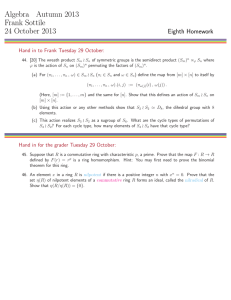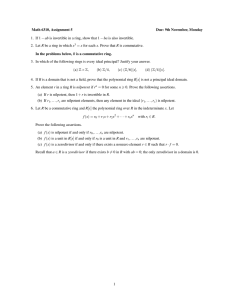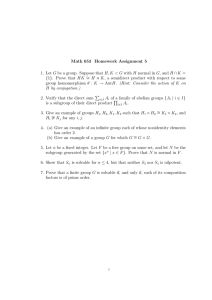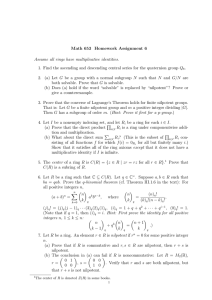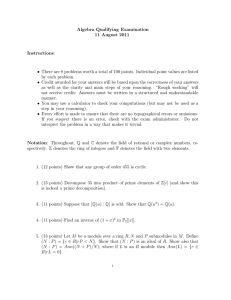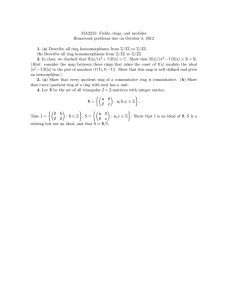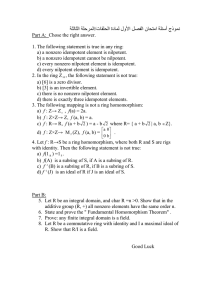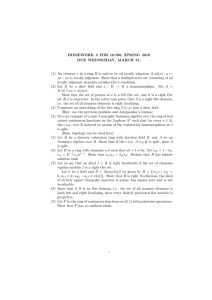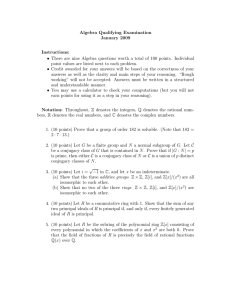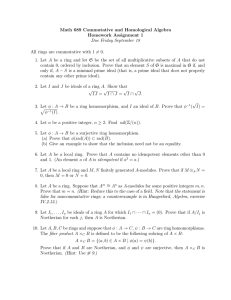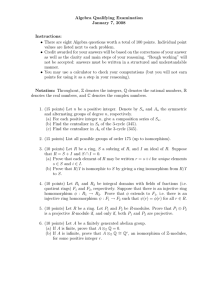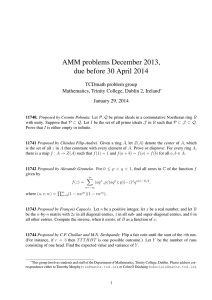Math 415 Homework Assignment 9
advertisement
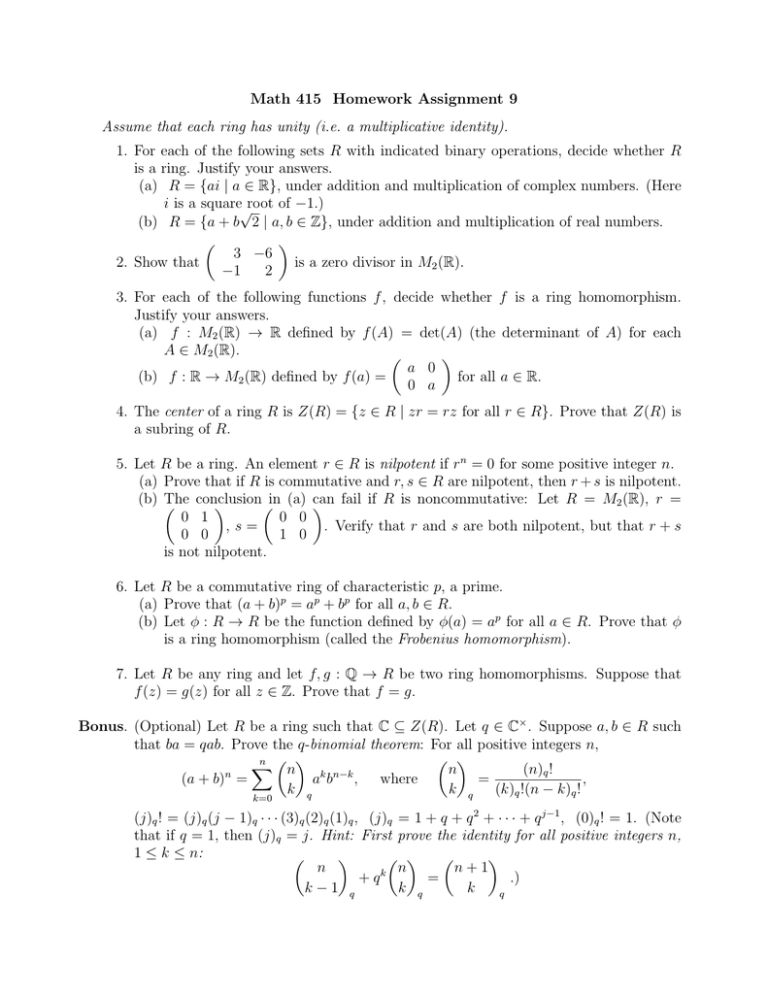
Math 415 Homework Assignment 9
Assume that each ring has unity (i.e. a multiplicative identity).
1. For each of the following sets R with indicated binary operations, decide whether R
is a ring. Justify your answers.
(a) R = {ai | a ∈ R}, under addition and multiplication of complex numbers. (Here
i is a square√root of −1.)
(b) R = {a + b 2 | a, b ∈ Z}, under addition and multiplication of real numbers.
3 −6
2. Show that
is a zero divisor in M2 (R).
−1
2
3. For each of the following functions f , decide whether f is a ring homomorphism.
Justify your answers.
(a) f : M2 (R) → R defined by f (A) = det(A) (the determinant of A) for each
A ∈ M2 (R).
a 0
(b) f : R → M2 (R) defined by f (a) =
for all a ∈ R.
0 a
4. The center of a ring R is Z(R) = {z ∈ R | zr = rz for all r ∈ R}. Prove that Z(R) is
a subring of R.
5. Let R be a ring. An element r ∈ R is nilpotent if rn = 0 for some positive integer n.
(a) Prove that if R is commutative and r, s ∈ R are nilpotent, then r + s is nilpotent.
(b) The conclusion
in (a) can
fail if R is noncommutative: Let R = M2 (R), r =
0 1
0 0
,s=
. Verify that r and s are both nilpotent, but that r + s
0 0
1 0
is not nilpotent.
6. Let R be a commutative ring of characteristic p, a prime.
(a) Prove that (a + b)p = ap + bp for all a, b ∈ R.
(b) Let φ : R → R be the function defined by φ(a) = ap for all a ∈ R. Prove that φ
is a ring homomorphism (called the Frobenius homomorphism).
7. Let R be any ring and let f, g : Q → R be two ring homomorphisms. Suppose that
f (z) = g(z) for all z ∈ Z. Prove that f = g.
Bonus. (Optional) Let R be a ring such that C ⊆ Z(R). Let q ∈ C× . Suppose a, b ∈ R such
that ba = qab. Prove the q-binomial theorem: For all positive integers n,
n X
n
n
(n)q !
n
k n−k
(a + b) =
a b , where
=
,
k q
k q (k)q !(n − k)q !
k=0
(j)q ! = (j)q (j − 1)q · · · (3)q (2)q (1)q , (j)q = 1 + q + q 2 + · · · + q j−1 , (0)q ! = 1. (Note
that if q = 1, then (j)q = j. Hint: First prove the identity for all positive integers n,
1 ≤ k ≤ n:
n
n+1
k n
+q
=
.)
k−1 q
k q
k
q
